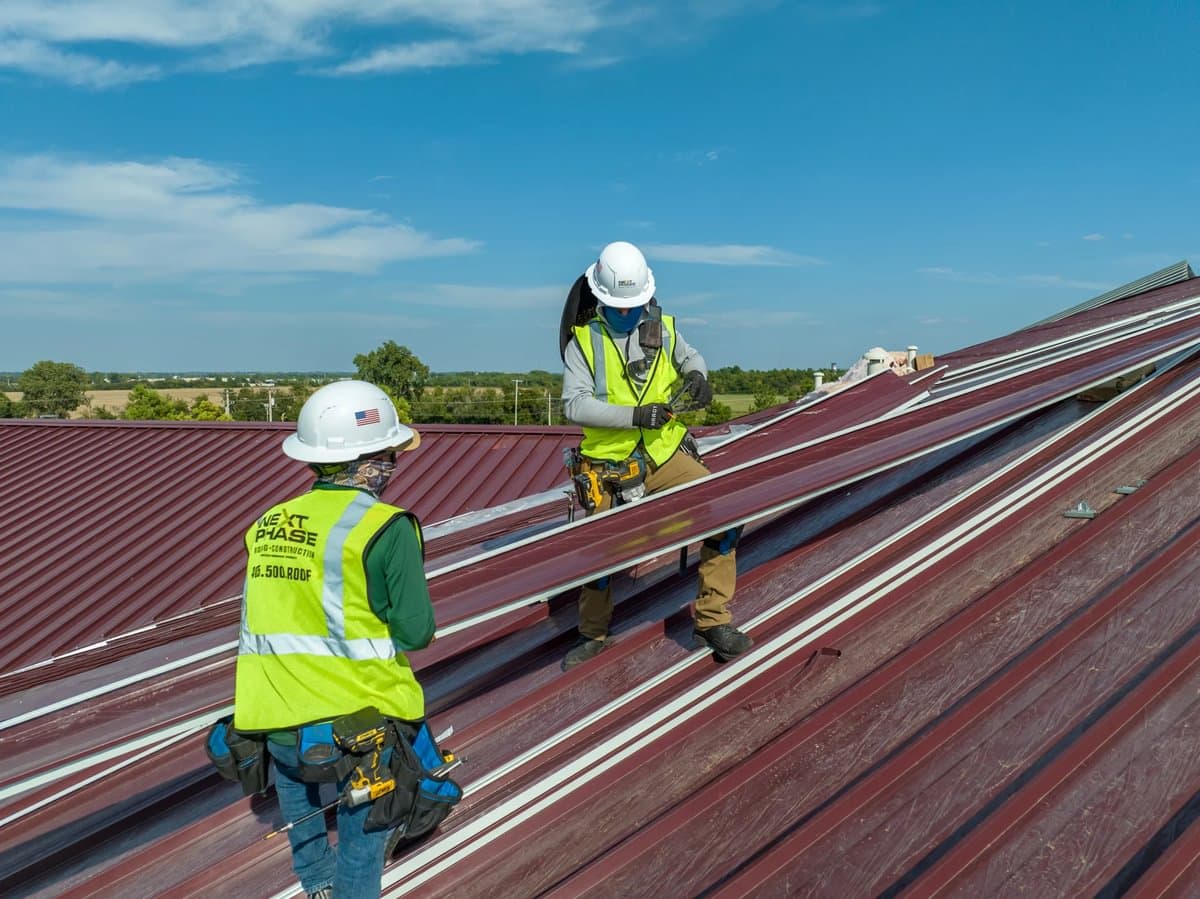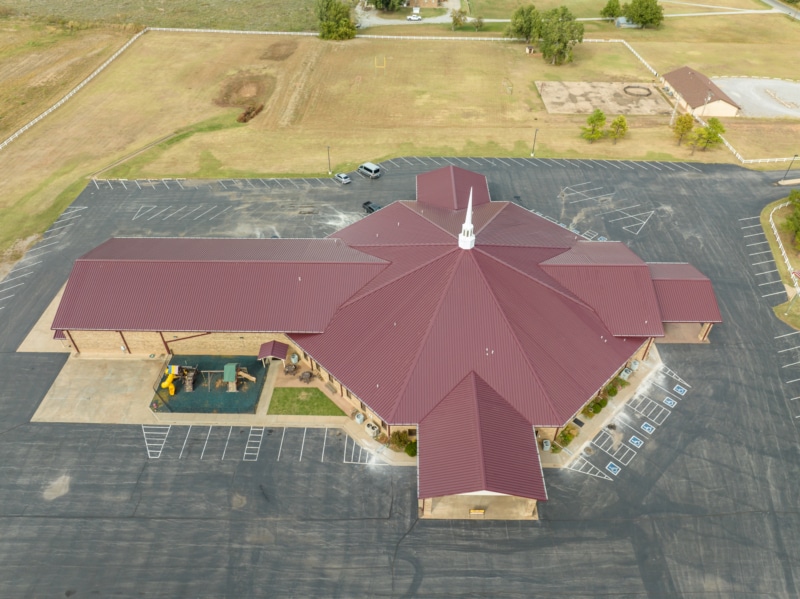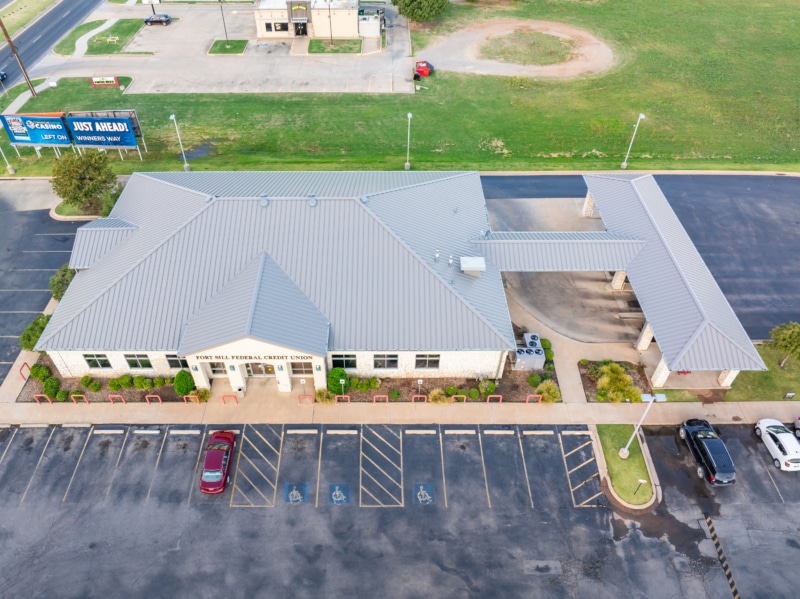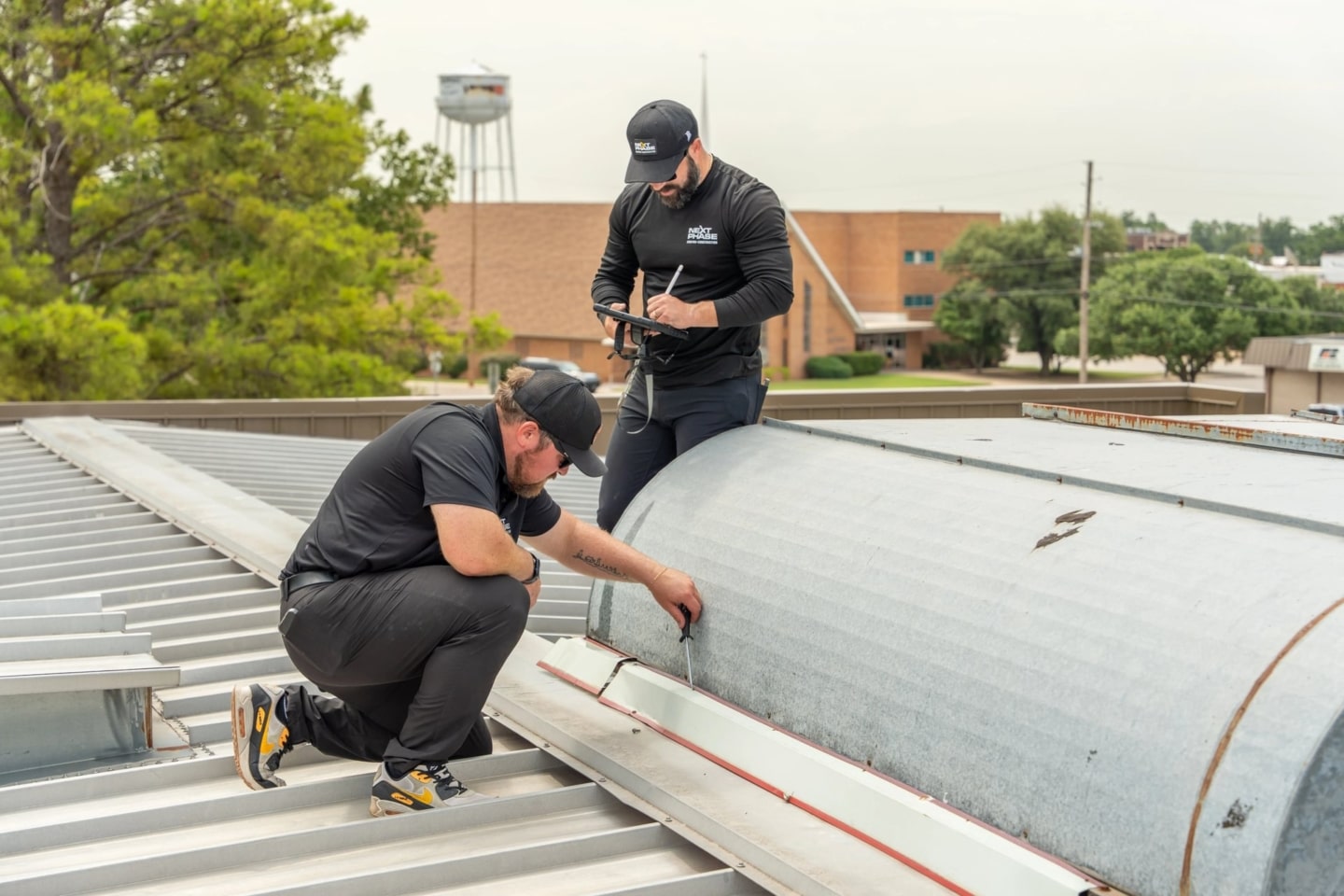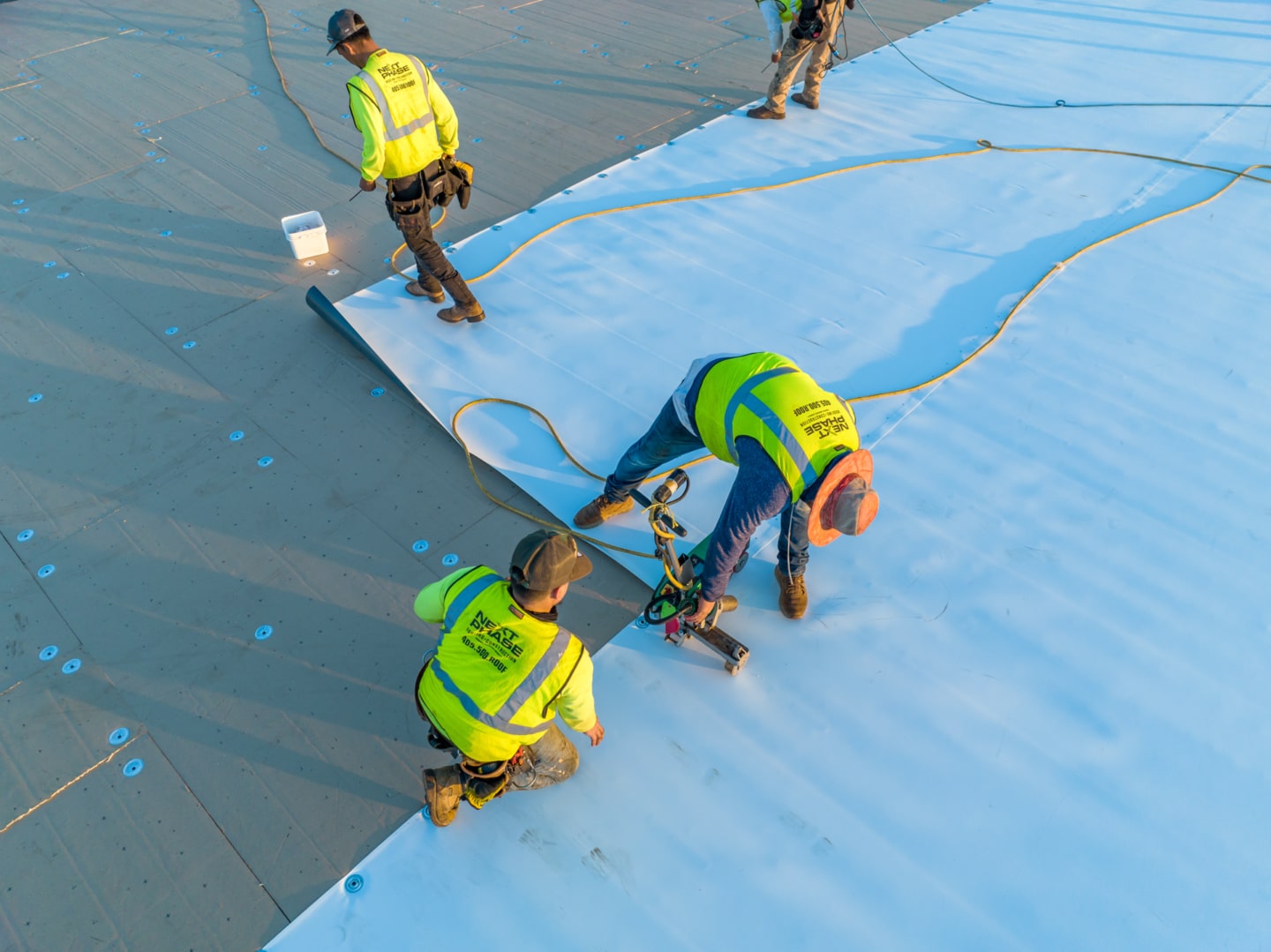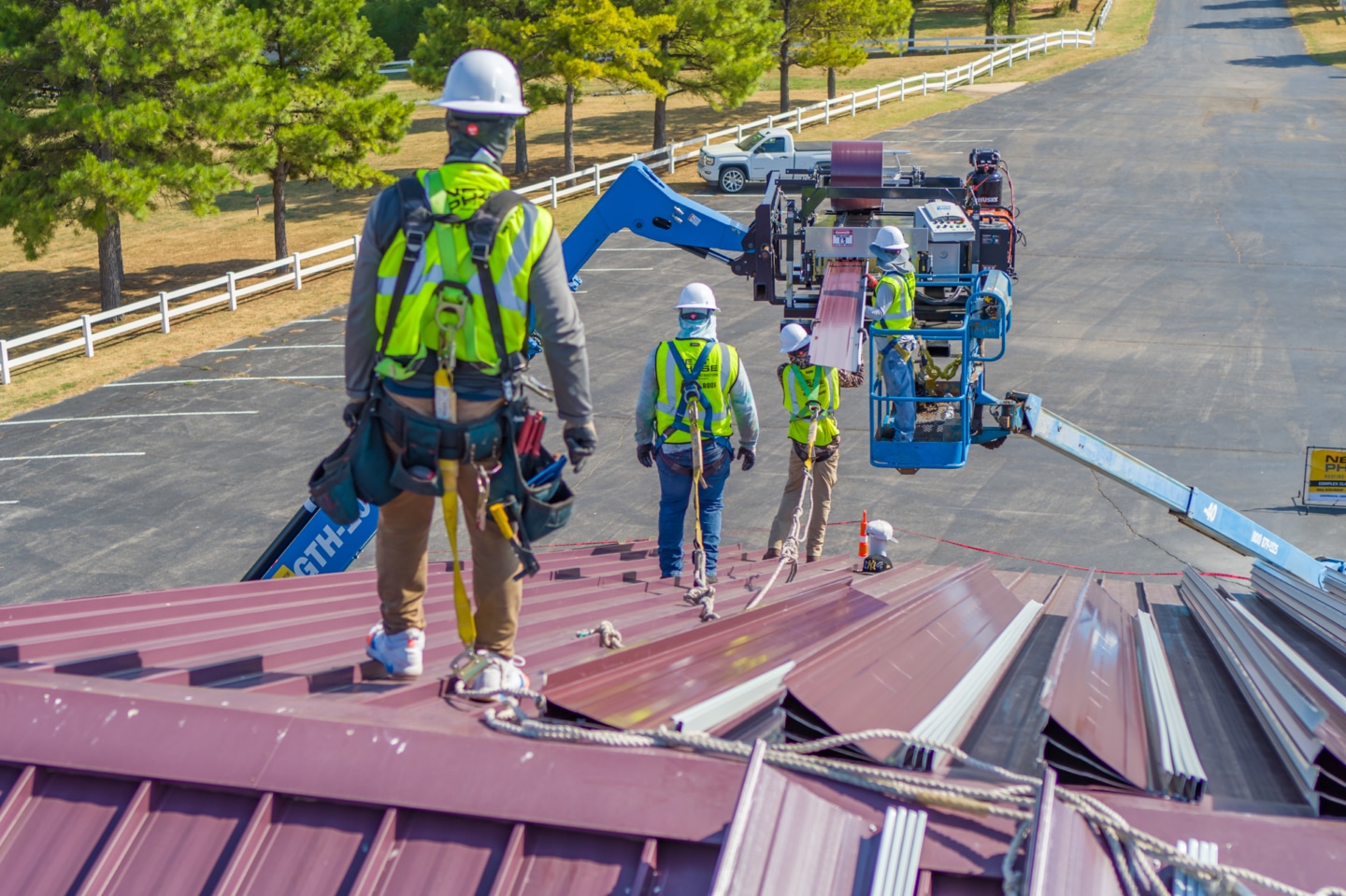Oklahoma is no stranger to extreme weather, experiencing everything from tornadoes and hailstorms, to ice storms and scorching summer heat. As these weather events become more frequent and intense, choosing the right roofing material is critical for long-term durability and protection. Metal roofs have proven to be one of the most resilient options, offering superior strength against high winds, snow, fire hazards, and fluctuating temperatures.
Whether you’re a building owner, property manager, or contractor, investing in a metal roof can provide peace of mind and long-term savings. Here’s how metal roofs hold up against Oklahoma’s toughest weather conditions.
High Wind Resistance
Oklahoma sits in the heart of Tornado Alley, meaning high winds from tornadoes, severe thunderstorms, and derechos are a constant threat. Traditional roofing materials, like asphalt shingles, can tear away or sustain severe damage in strong winds, leading to costly repairs. Metal roofing, on the other hand, is specifically engineered to withstand hurricane-force winds.
- Interlocking Panels: Metal roofing systems, such as standing seam roofs, feature concealed fasteners and interlocking panels that provide a tight, secure fit. This design prevents wind from getting underneath and ripping off individual sections.
- Fewer Weak Points: Unlike traditional shingle roofs, which have multiple seams and exposed edges, metal roofs use larger, continuous panels that reduce potential weak spots where wind can penetrate.
- Industry-Recognized Ratings: Many metal roofing systems meet or exceed FM Global and UL 580 uplift resistance ratings, ensuring they can withstand extreme wind conditions. Some systems are rated for wind speeds of 140+ mph, providing exceptional performance in storm-prone areas like Oklahoma.
Hail Resistance
Oklahoma is no stranger to severe hailstorms, with some producing hailstones large enough to cause major damage to buildings. Traditional roofing materials like asphalt shingles and clay tiles can crack, dent, or lose protective granules when exposed to hail, leading to costly repairs and premature roof replacement. Metal roofing, however, offers superior impact resistance, making it the best choice for hail-prone areas.
- Class 4 Impact Resistance: Many metal roofing systems carry a Class 4 impact resistance rating. This means they can withstand hailstones up to two inches in diameter without significant damage.
- Durable, Dent-Resistant Panels: Metal roofs are designed to absorb and disperse impact energy, reducing the risk of punctures or cracks that could lead to leaks. Some metal roofing systems also feature textured finishes or specialized coatings to help minimize visible denting.
- Long-Term Protection: Unlike traditional materials that weaken after repeated hail exposure, metal roofing maintains its integrity over time. This durability reduces the need for frequent repairs and extends the lifespan of the roof.
Ability to Shed Snow and Ice
While Oklahoma is known for its hot summers, winter storms can also be a significant challenge. Ice storms, snowfall, and freezing temperatures can take a toll on roofs, leading to ice dams, leaks, and structural stress. Metal roofs are designed to handle these conditions with ease.
- Smooth Surface for Easy Shedding: Unlike rough asphalt shingles, which trap snow and ice, metal roofs have a sleek, non-porous surface that allows snow to slide off naturally.
- Reduced Structural Load: Snow accumulation can place thousands of pounds of weight on a roof, leading to potential collapse. By preventing snow buildup, metal roofs alleviate excess weight, protecting the structure.
- Prevention of Ice Dams: Ice dams occur when melted snow refreezes at the roof’s edge, causing water to back up under the roofing material and leak inside. Metal roofs minimize this risk by allowing snow and ice to slide off before refreezing can occur.
Additional Benefits for Extreme Weather Conditions
Beyond their ability to withstand strong winds, snow, and hail, metal roofs offer long-term benefits that make them a smart investment for commercial and industrial properties, schools, and churches. Their unmatched durability ensures protection from fire risks, heavy rain, and extreme temperature fluctuations.
- Fire Risks: Metal roofing has the highest fire-resistance rating available, meaning it can withstand direct exposure to flames without igniting or spreading fire. A properly grounded metal roof will not increase the likelihood of lighting strikes, and instead can help safely disperse electrical charges, reducing fire risks.
- Heavy Rain: Metal roofing panels are engineered to channel water efficiently, reducing the risk of leaks, pooling, and water damage. With proper installation and sealants, metal roofs provide excellent waterproofing, even during prolonged storms.
- Extreme Heat: Oklahoma’s summers can be brutal, with temperatures often exceeding 100°F. Metal roofing materials don’t expand or contract as much as traditional materials, preventing the warping, cracking, or buckling that often results from heat-induced stress.
Key Takeaways
For Oklahoma property owners looking for a roofing solution that provides strength, longevity, and cost savings, a metal roof is the ideal choice. Whether you’re upgrading an existing roof or building a new structure, investing in metal roofing ensures your property is prepared for whatever Oklahoma’s weather throws your way.
Our expertise in severe weather-resistant roofing, including inspections, damage analysis, and expert repairs, makes Next Phase a trusted, turn-key solution for schools, churches, industrial, and commercial properties across Oklahoma. With our commitment to durability and superior customer service, we make weatherproofing your roof seamless and stress-free—ensuring your building stays protected against Oklahoma’s harshest conditions.
Contact us at https://nextphaseroofing.com/contact-us/ or call us at 405-500-7663 to schedule an inspection.
